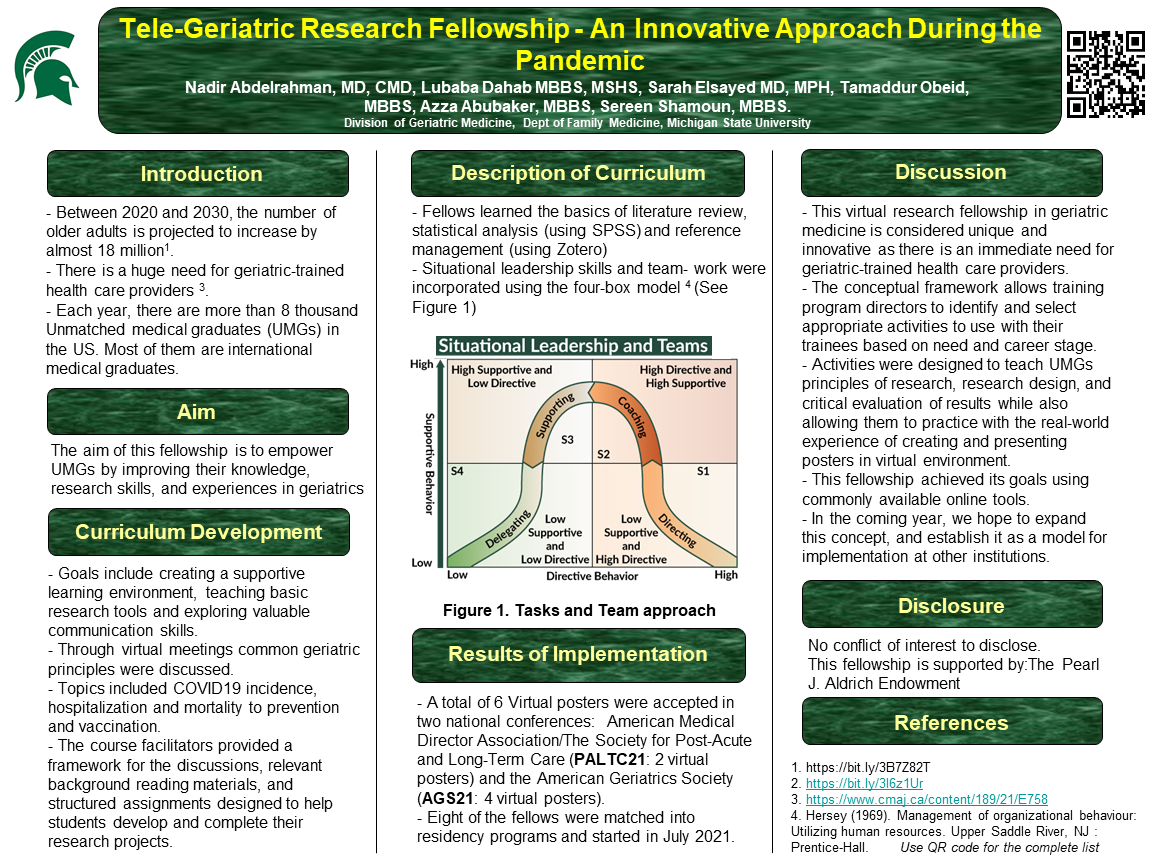PRP083: Tele-Geriatric Research Fellowship [TGRF] - an innovative approach during the pandemic.
Nadir Abdelrahman, CMD; Tamaddur Obeid, MBBS; Azza Abubaker, MBBS; Sereen Shamoun; Lubaba Dahab, MD; Sarah Elsayed, MD
Abstract
Aim: The aim of TGRF is to empower UMGs by improving their knowledge, skills, and experiences in geriatric medicine. A curriculum was developed based on Entering Research course. Goals include creating a supportive learning environment to introduce UMGs to the culture of research as well as teaching them valuable skills needed to become effective researchers. The fellowship was designed to help medical graduates find a research mentor, explore the culture of research, write a research project proposal, and begin doing research. They informally share their research experiences and learn about the diversity of experiences available through their peers. Through virtual meetings, research basics, communication skills and common geriatric principles were reviewed. Early discussions included current pandemic topics ranging from COVID19 incidence, hospitalization and mortality to prevention and vaccination hesitancy. The content of these discussions came from the students, and their engagement in the weekly, 2-hour-long meetings. The course facilitator provided a framework for the discussions, relevant background reading materials, and structured assignments designed to help students develop positive relationships with their research mentors, define themselves as a member of the research community, and understand and communicate their research. Method: Fellows were grouped into teams. Different tasks were assigned to each fellow. Team leaders encouraged individual fellows to complete their assigned tasks. Projects identified and project leaders assured completion of each Poster. Fellows learned the basics of literature review, statistical analysis (using SPSS) and reference management tools (e.g EndNote). Results: A total of 6 Virtual posters were accepted in 2 national conferences.TGRF is considered unique and innovative as there is an immediate need for geriatric-trained health care providers. Virtual Activities were designed to teach UMGs principles of research and critical evaluation of results during the pandemic.

Nadir
11/19/2021Thank you